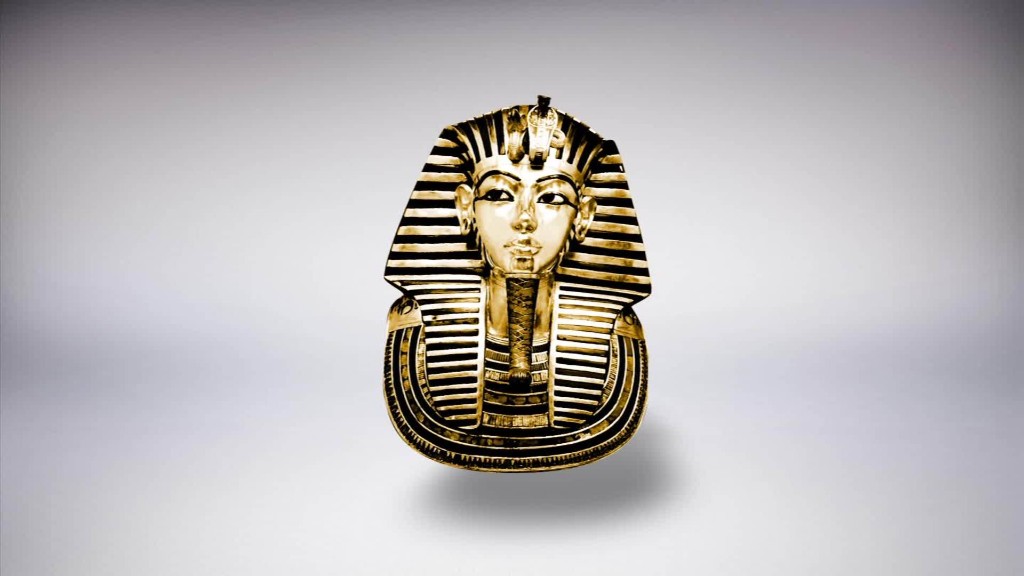
There are a lot of losers from Brexit. But there is one undeniable winner -- gold.
The yellow metal was up again Monday following a nearly 5% surge Friday. Gold has now soared more than 25% this year and is trading at around $1,330 an ounce. That's its highest level in more than two years.
Miner Newmont (NEM) was one of the few stocks in the S&P 500 to gain ground on both Friday and Monday. The stock has now soared 110% this year.
Gold often rallies in times of intense market turmoil. It hit an all-time high above $1,900 in 2011 when investors worried about the debate over the debt ceiling in the U.S. Congress and subsequent downgrade of America's credit rating by Standard & Poor's.
And with CNNMoney's Fear and Greed Index once again hitting Fear levels in the wake of the United Kingdom's decision to leave the European Union, it seems like gold could continue to shine for the foreseeable future.
Related: George Soros bets big on gold
Several high-profile investors made bets on gold before the Brexit vote too.
George Soros bought gold miner Barrick Gold (ABX) in the first quarter and also acquired options that would give him the right to purchase the SPDR Gold (GLD) exchange-traded fund.
Investing gurus Stanley Druckenmiller, Ray Dalio and Jeff Gundlach have also been bullish on gold lately.
So can gold keep rallying?
The bull case for a new record high. Frank Holmes, chief investment officer of U.S. Global Investors, said he thinks gold could easily get back to $1,500.
He thinks gold is even more attractive following the Brexit vote because it has pushed interest rates around the world even lower.
Deflation is now a bigger worry than inflation. Conservative investors are less likely to want a government bond in Germany with a negative interest rate or a U.S. 10-Year Treasury yielding only about 1.4% when they could buy gold instead, Holmes argues.
"Gold always goes up when there are negative interest rates," he said.
David Beahm, president and CEO of Blanchard & Co., a precious metals investing firm, is even more bullish on gold. He thinks that the U.K.'s decision to leave the EU could lead to several more countries doing so.
Some are already calling for the Netherlands to follow the U.K. with a so-called Nexit. (Or is it Hexit for Holland? Dexit for Dutch?) A wave of EU departures could push gold back above $1,900.
"Gold could test the highs of a few years ago due to the fears of all this uncertainty," Beahm said. "The European Union may cease to exist."
Gold back above $1,900? Not so fast. Others aren't so sure that the U.K. will be the first domino to fall though. That could limit the upside for gold.
"Brexit may have been priced in already," said Maxwell Gold -- yes, that's his real name -- director of investment strategy with ETF Securities. The firm runs the Physical Swiss Gold ETF, (SGOL) which now has more than $1 billion in assets.
Gold (the person) thinks gold (the metal) may be able to go up only another 5% or so to around $1,400. He added that there would need to be more demand for gold jewelry from China, India and other emerging markets for gold to really go higher.
Josh Crumb, co-founder and chief strategy officer of investment firm Goldmoney, isn't sure gold can climb that much more either.
He also said that gold tends to historically move in tandem with oil prices -- as well as interest rates. Crude has plunged in the past few days along with the broader market. If oil doesn't reverse course, gold may soon head south as well.
"Gold correlates with energy very efficiently," Crumb said. "Gold was clearly undervalued at $1,050 and it was clearly overvalued at $1,900."
It's important to note too that gold plunged in 2008 in the wake of the collapse of Lehman Brothers and the Great Recession. Just like everything else. So if Brexit leads to a global economic downturn, even the yellow metal may not wind up being safe.


